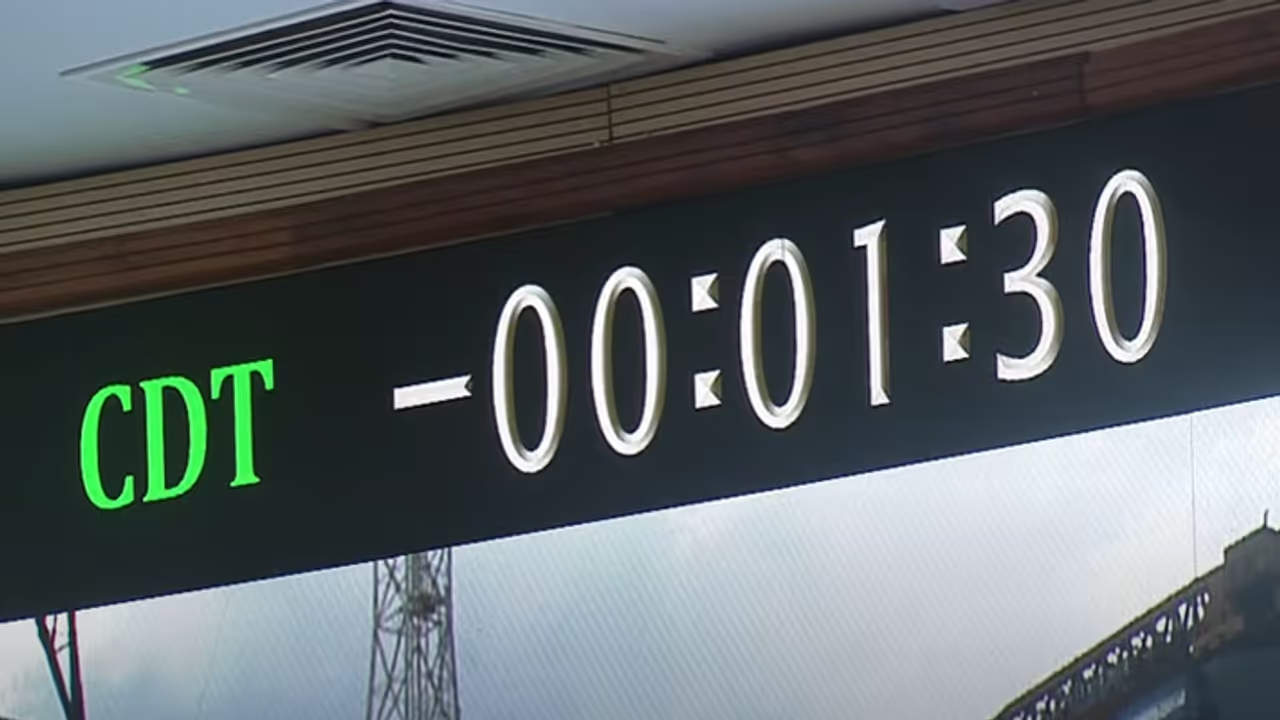Get ready for massive shift in the world of cricket as the West Indies vs England T20I series introduces the groundbreaking Stop-Clock Rule on December 12.
Cricket enthusiasts are gearing up for a groundbreaking change in the West Indies vs England T20I series starting on December 12 – the introduction of the stop-clock rule, a significant departure from the traditional pace of the game. This rule, aimed at addressing the perennial concern of slow over-rates, promises to inject a sense of urgency into international cricket.

Key Features of the Stop-Clock Rule:
Timing Precision:
The stop-clock rule mandates that the fielding team must be prepared to bowl within 60 seconds of the conclusion of the previous over. This stringent time limit aims to expedite the pace of the game, keeping spectators engaged and enhancing the overall viewer experience.
Violation Consequences:
Any breach of the 60-second timeframe comes with consequences. The first two violations result in warnings issued to the bowling side. However, a third violation incurs a more significant penalty – a five-run deduction against the bowling team. This punitive measure aims to ensure adherence to the stipulated timeframe.
Trial Period:
The stop-clock rule is set for a trial period during Full Member men's ODIs and T20Is, spanning from December 2023 to April 2024. This trial phase will witness around 59 games, providing a comprehensive evaluation of the rule's impact on the dynamics of the matches.
Additional Penalty:
In addition to on-field consequences, teams failing to maintain the required over-rate may face monetary fines, as per the International Cricket Council's (ICC) playing conditions. This dual approach aims to enforce compliance and uphold the spirit of the game.
Exceptions to the Rule:
While the stop-clock rule introduces a sense of urgency, there are pragmatic exceptions to ensure fairness and account for unforeseen circumstances. Exceptions include:
New Batter Arrival:
When a new batter arrives at the wicket between overs, the 60-second clock is reset to allow for the necessary adjustments and preparations.
Official Drinks Interval:
The clock is paused during an official drinks interval, providing players with a brief respite while maintaining the overall efficiency of the game.
Umpire-Approved Injury Treatment:
The clock is halted when on-field treatment is approved by the umpires, recognizing the importance of player welfare.
Time Loss Beyond Control:
The rule acknowledges that certain circumstances, beyond the control of the fielding side, may lead to time loss. In such cases, the clock is paused to ensure fairness and practicality.
As cricket embraces the stop-clock rule, the West Indies vs England T20I series marks a historic moment in the sport's evolution. Fans eagerly await the impact of this innovative approach, hoping it will not only quicken the pace of the game but also enhance the excitement and competitiveness of international cricket. The stop-clock rule is poised to redefine how we experience and appreciate the timeless game on the global stage.
